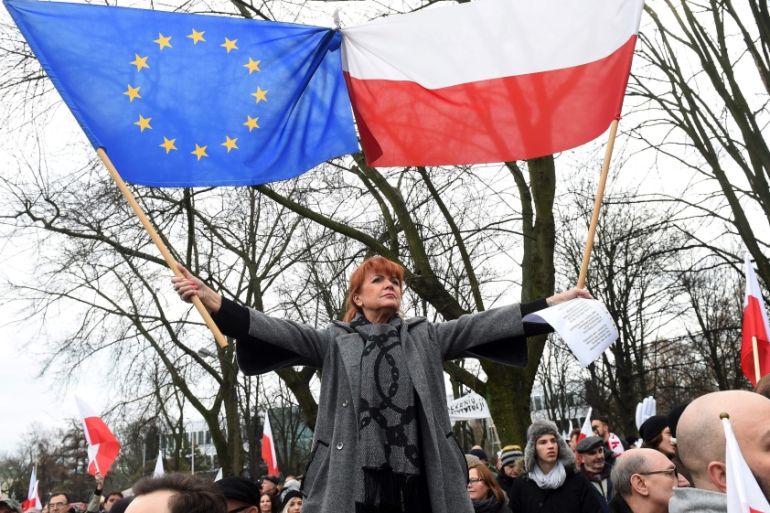EU probes Poland over media and court reforms
European Commission will open case against Warsaw over new legislation that allegedly contravened EU code of law.

The European Commission says it will launch a probe over Poland’s new constitutional court and media legislation that has been criticised as running counter to the bloc’s fundamental principles about the rule of law.
European Union Commissioner Frans Timmermans said on Wednesday that his executive would carry out a preliminary assessment of this matter – the first step in a drawn-out procedure that could ultimately lead to suspending Polish voting rights in the 28-nation bloc.

Poland government spokesman Rafal Bochenek played down the decision, saying it was a “standard procedure” that did not influence Poland’s relations with the European Commission. Bochenek said Timmermans had already been invited to Warsaw for talks on the Polish laws.
Keep reading
list of 4 items‘Can’t give them jobs’: Rwandans grapple with fears over UK asylum plan
‘It feels personal’: Residents fight Melbourne tower block demolition plan
‘Children of the Ganges’ — The boatmen of India’s Varanasi
In December, Poland’s ruling Law and Justice party, which has a full parliamentary majority, took steps to gain influence in the constitutional tribunal, which is supposed to be an independent arbiter with the power to block the government’s legislation.
In addition, Poland’s president signed a law last week that heads towards giving the government full control of state radio and television, a move critics also see as undermining a cornerstone of democracy.
The controversial reforms have fueled much political and public opposition in Poland. Tens of thousands took to the streets of the Warsaw to protest against the constitutional court changes.
Even before Wednesday’s announcement, the Polish government has criticised the EU and some of its leaders for meddling in its internal affairs.
The EU has had similar problems with Hungary, and the country’s Prime Minister Viktor Orban has already stressed his support for Poland.
So far, the EU has never had to move toward suspending the voting rights of a member state.